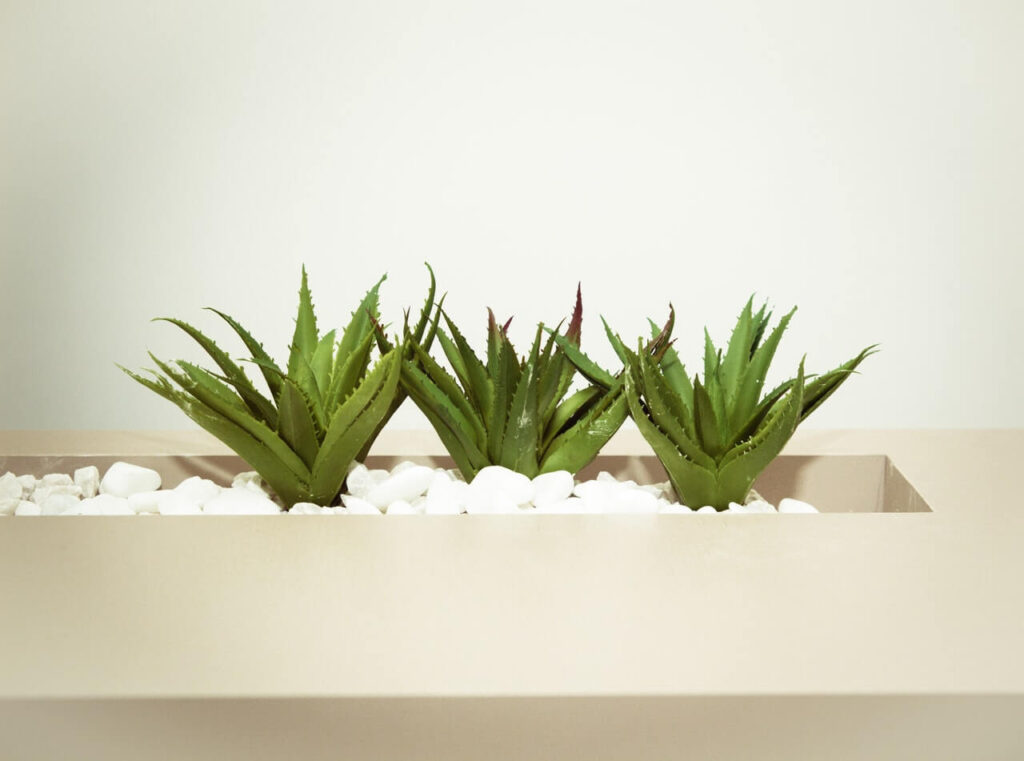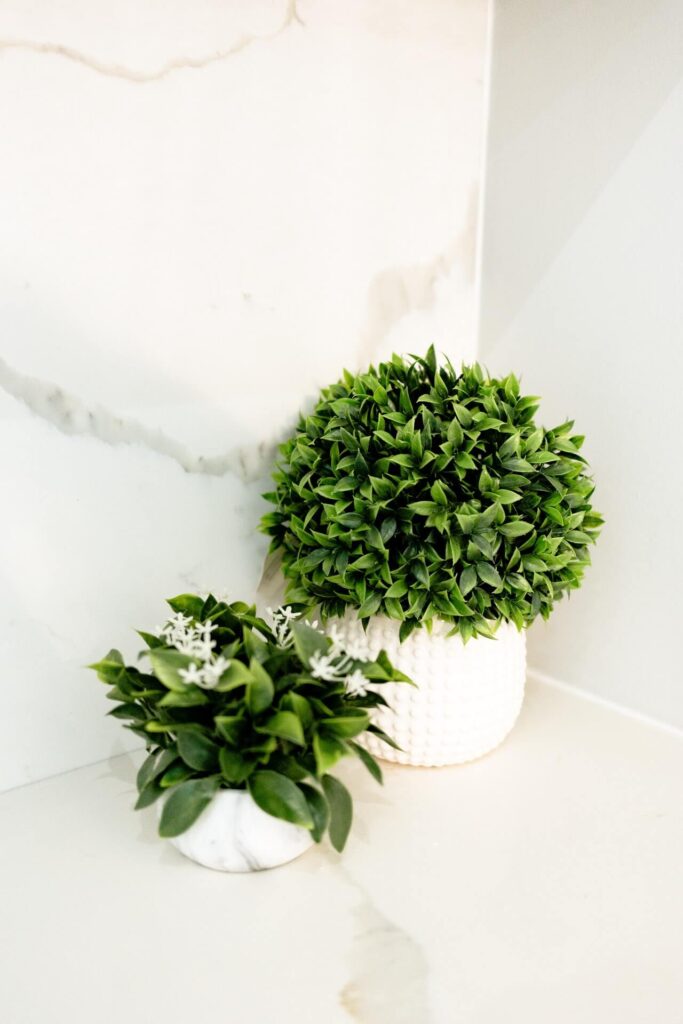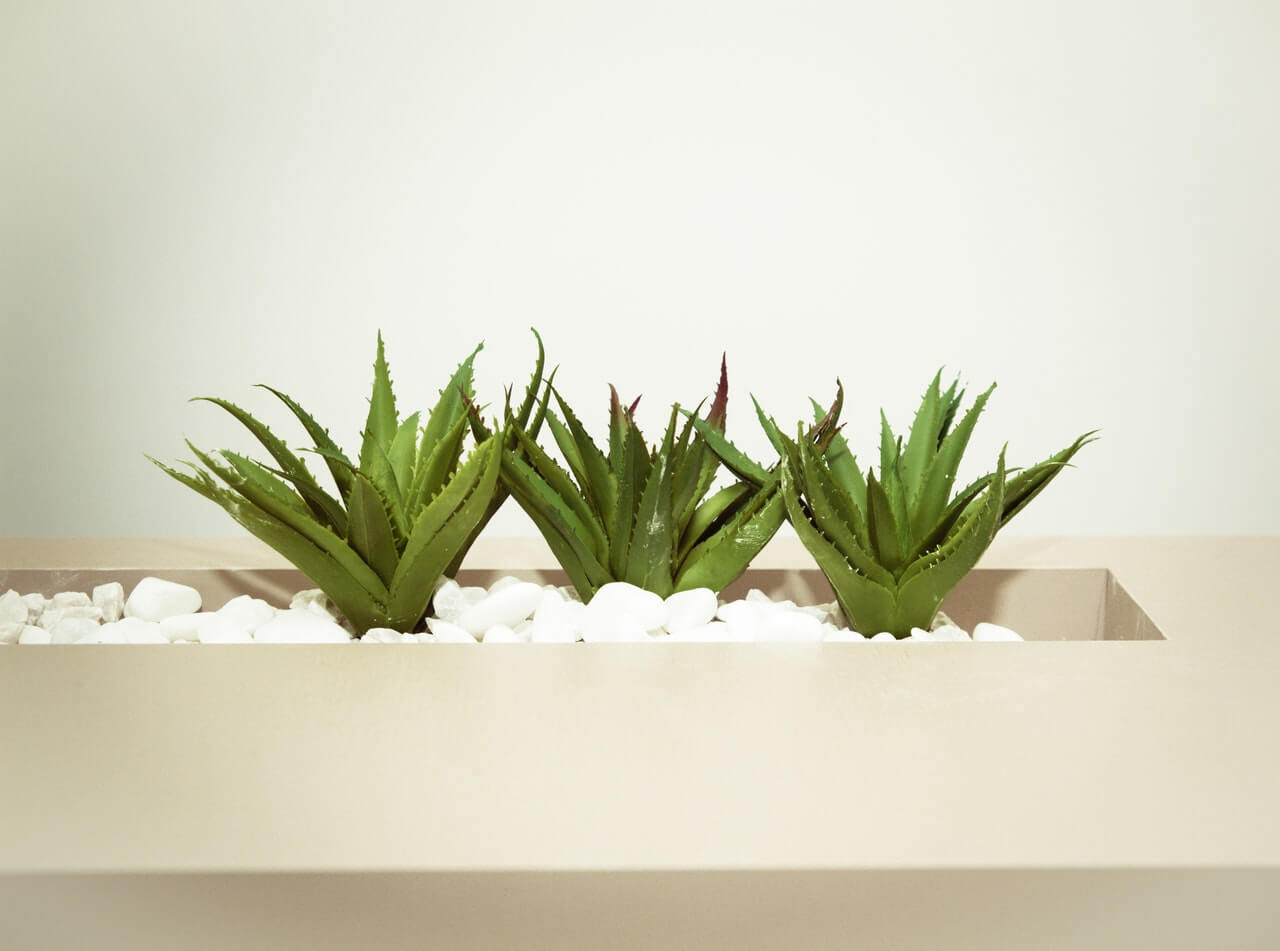If you’re having trouble sleeping, you’re not alone. A third of adults report having occasional insomnia, with 10 to 20 percent reporting that they have problems with sleep on a regular basis. In addition to stress and anxiety, sleep problems can also be triggered by changes in our circadian rhythm as the seasons change from summer to fall.
Lighting plays a critical role in regulating our circadian rhythms, which is why so many of us struggle to catch some zzzs during the winter months. Luckily, there are plenty of ways we can entice our bodies into thinking it’s time for bed — without relying on sedative pharmaceuticals. By incorporating these five plants into your home, you can induce natural sleep and help your body get back on track.

Aloe Vera
Aloe is one of the most healing plants around. It’s been used for thousands of years to help treat a wide range of diseases and disorders, including sleep disorders. Whether you’re looking to improve your quality of sleep or simply looking for better rest, Aloe Vera is a great addition to your home. These plants help relax the body and mind, allowing you to get the rest you need. Growing Aloe Vera plants don’t require a lot of work, and they are easy to maintain. These plants can be put in any room of the house and will help create a relaxing environment.
If you’re looking to improve your quality of sleep, adding an Aloe Vera plant to your bedroom is a great idea!
Lavender
Lavender is a flowering plant that is native to the Mediterranean and is a popular addition to many gardens. Many people believe that the fragrance of lavender can help with sleep, and to some extent, this is true. Lavender contains chemical components that have a relaxing effect on the body. In addition, the sweet fragrance of lavender can help you relax, both physically and mentally.
Lavender can be used to make teas, tinctures, and oils, and can also be added to bath water. The scent of lavender is very calming and soothing. It can help you relax before bedtime, which will help you get a better night’s sleep.
If you are thinking of adding lavender to your home, it is best to choose plants that are in bloom. These plants will produce more flowers over time while individual flowers last only a few days. Be sure to water your plants deeply and regularly (once or twice a week) and provide them with plenty of sunlight.
English Ivy
The English Ivy plant is one of the best plants for improving your sleep. These plants are great for bedrooms or living rooms and are known for their relaxing properties. Not only do they look great in your home, but they will help you relax at the end of a long day.
The English Ivy plant is a common houseplant that is easy to care for and can fit into any home. They are also low maintenance and require little attention. What makes these plants so relaxing is their ability to create a calm atmosphere and absorb toxins from the air. These beautiful plants are easy to care for and can brighten up any space in your home.
Spider Plant
The Spider plant is common and easy to care indoor plant. It can be said that there is no plant more forgiving than the Spider plant. Spider plants have green and white leaves and soft, fine, hairlike roots that trail from the bottom of the leaves. Their attractive appearance makes them a popular choice for many homes and businesses.
According to folklore, Spider plants are said to bring good luck, peace, and prosperity to your life. If you keep one near your front door, it will repel evil spirits and bring you safety as you enter and exit your home. Spider plants are found everywhere and emit oxygen at night which means they can help you sleep well. It is one of the best choices you can make in order to increase the quality of oxygen in the air we breathe.
Spider plants are also known to release peace hormones, which can help improve sleep quality by reducing anxiety and nervousness (which is beneficial for deep, restful sleep).
Jasmine

Jasmine is a beautiful, fragrant flower with long thin leaves that can be grown indoors or outdoors. Jasmine has been used medicinally for millennia and is still used today to treat insomnia and anxiety. Jasmine contains certain compounds that have been shown to promote serotonin production in the brain. Jasmine has also been shown to reduce cortisol levels, which can help you sleep better.
Jasmine has a sweet, floral scent that will help you relax and get a good night’s rest, and can be added to any room in your house. You can also try tucking a Jasmine flower behind your ear or keeping one on your nightstand.
Conclusion
Whether you enjoy a cup of herbal tea before bed or choose to diffuse essential oils throughout your home, having plants in our homes can help us feel calmer, more relaxed, and more energized, and should not be overlooked. The plants mentioned above not only help you induce sleep but also look good and give your interior a breath of fresh air.








